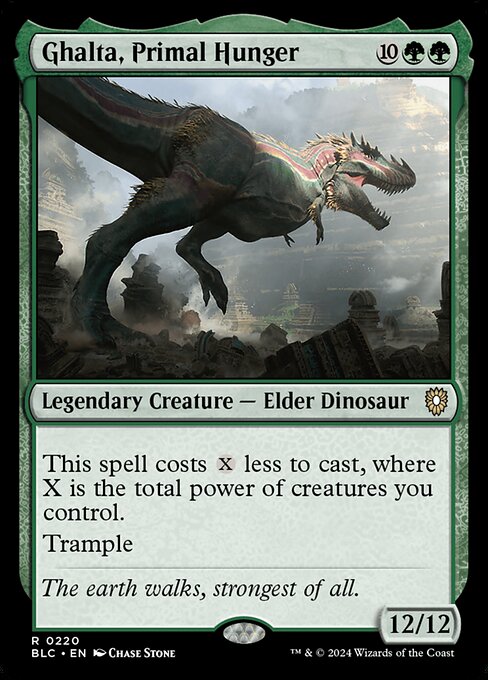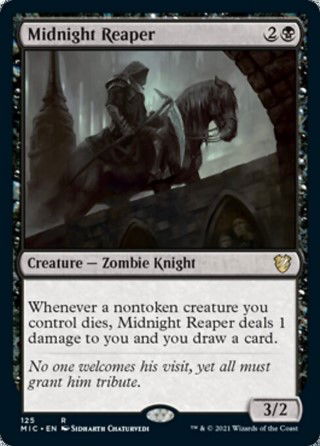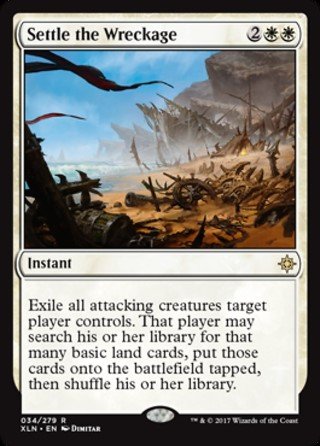Risendragon's Guide to Teaching Children How to Play MTG
Full disclosure: I am writing this while home with my son, who spiked a 102 fever the night before. Parenting is usually a zesty and worthwhile enterprise, but not when your littlest is sick. Parenting is also an opportunity to pass on your interests to the next generation, especially if they are interested in games as well. Magic: The Gathering may not seem like the best game to introduce to younger children, but those that have that view could be missing the fact that the game does provide access to some key developmental and strategic skills.
Before we continue, a little bit about me: I am a late 30’s middle school English and history teacher with two kids (ages seven and three), a loving wife, and a passion for games. In recent years my main game of choice has been chess and I have coached two high school teams to two consecutive state championship titles while also being ranked in the top 100 in my home state of New Hampshire. MTG was a major interest of mine when the first Ravnica set came out due to my position working at a group home for juvenile offenders but this interest faded during the Lorwyn block once I realized how much money I had spent to basically suck at the game. This past August I began a new teaching position at a small middle school and soon discovered that MTG was still just as popular as it was when I first started playing in middle school (back in 1995). Second day on the job and a student asks me to play, so I peruse the student’s card selection, build a quick 40 card U/R deck, and proceed to surgically destroy said student with an ad hoc selection of burn, counter, and drakes. MTG and chess have similarities and one of them is that both games are like malaria: once they are in your blood they are difficult to get rid of. Once more I was hooked.
MTG Arena has been a godsend in many ways, primarily the fact that for a fraction of what a deck with Teferi would cost in paper, I can access powerful cards and play competitive decks with little monetary investment on my part. This is a big deal for parents and homeowners where every penny goes towards something involving either keeping your kids alive or keeping a roof over their heads (or both). This program has also introduced my kids to the game and I could not be happier since MTG is a great teaching tool for younger players.
The first skill the game teaches is resource management. This is a skill that is woefully under-taught in schools since the advent of Common Core here in America. There are few classes that teach the skill directly and it is a peripheral skill in the grand scheme of the miasma that is Common Core. Sadly, it is a desperately needed skill if one expects to survive comfortably in the real world. MTG of course revolves around mana, those land drops that give us access to spells. When my seven-year old daughter saw me play for the first time, she wanted me to drop my scary looking Ghalta, Primal Hunger on move two. Could not do it, I explained, I needed more lands. By the time the game was over, she understood the basics of the game and how managing resources worked in my favor.
on move two. Could not do it, I explained, I needed more lands. By the time the game was over, she understood the basics of the game and how managing resources worked in my favor.
The second skill the game teaches is math skills. This ties in with resource management in the fact that mana and life are resources in the game and that if my opponent is swinging in for 5 when I am down to 4 life, I am losing the game. Saving and gaining life, knowing when to use shock lands or a Midnight Reaper to our advantage, and plotting our opponent’s own demise requires strategy and math skills, basic subtraction and addition. The third skill the game highlights is strategy. Much like chess, you have to be aware of what your opponent is doing at all times and how they can respond to your threats and vice versa (how you can respond to theirs). If I am against a person with four mana open on my turn, two of them being Plains, I can probably assume that they are holding up a Settle the Wreckage
to our advantage, and plotting our opponent’s own demise requires strategy and math skills, basic subtraction and addition. The third skill the game highlights is strategy. Much like chess, you have to be aware of what your opponent is doing at all times and how they can respond to your threats and vice versa (how you can respond to theirs). If I am against a person with four mana open on my turn, two of them being Plains, I can probably assume that they are holding up a Settle the Wreckage to deal with my onslaught. If I swing in and they are indeed holding that dreaded Settle, well that is a blunder on my part; if I do not and the turn passes, then they have successfully defended by doing nothing but threaten me with the Settle whether they have it or not.
to deal with my onslaught. If I swing in and they are indeed holding that dreaded Settle, well that is a blunder on my part; if I do not and the turn passes, then they have successfully defended by doing nothing but threaten me with the Settle whether they have it or not.
There are many other skills that the game teaches but the fourth one is imagination and creativity. I explained the concept of the game to my daughter, that you are a wizard called a planeswalker and that you use energy drawn from the lands to cast these spells to defeat the planeswalker across the way. Once she got into that mindset, she became even more interested and once she saw that mermaids (merfolk) were a part of the game, she instantly wanted to build a deck around the fish folk. So, with a little tweaking from me but with her ideas at the forefront, we built and refined a Mono U merfolk deck (see Maddie’s Merfolk for a write up). Some poor soul then unwittingly lost a game to a deck piloted and designed by a seven-year old. One of my proudest dad moments so far!
My advice for parents who want to introduce the game to their own kids is to keep it simple first and foremost. Explain the basics, how mana works, how the cards work, and how to use simple math to win the game. Design a deck that has an equal amount of creatures and control aspects, this way they learn that their spells do not always resolve and that they need to be aware of that, especially playing in a control-heavy meta with Esper and Mono U or Sultai control decks. Once your child has grasped this concept, design a deck with some burn; Izzet Drakes is a great deck for a young beginner player because it has burn, control, and potentially big creatures. But the best advice I can offer to parents is to let your kids be kids with the game, teach them to have fun with it, and teach them the value of the multitude of skills that this game can offer. Most importantly though, let them make mistakes, let them build and play decks that do not seem to work and that for all intents and purposes SHOULD NOT work, and guide them through how to build and play decks that DO work. Lean away from ranked play, casual play is the best option Arena has come up with so far. That way, your kids can learn from their errors and make better choices while not affecting their standing in the grand scheme of the game. Patience and parenting go hand in hand, as does playing MTG. Until next time, may all your draws be God draws and may all your spells see the board. Have fun and good hunting!
About Risendragon:
Married father of two, middle school history/English teacher with a passion for games.
TWITTER: @RisendragonGame
YOUTUBE: Risendragon Games Gaming


